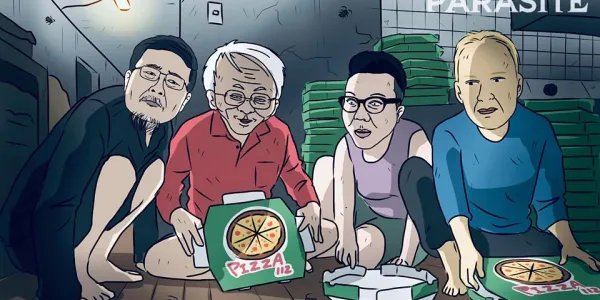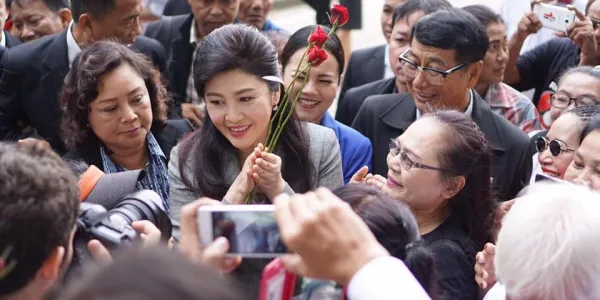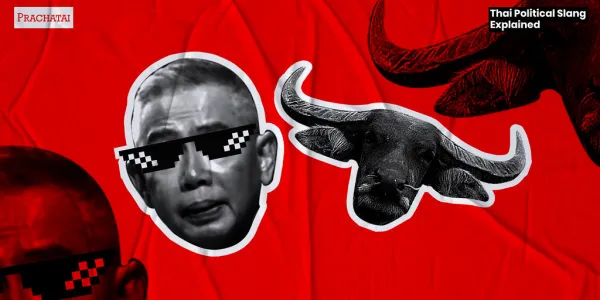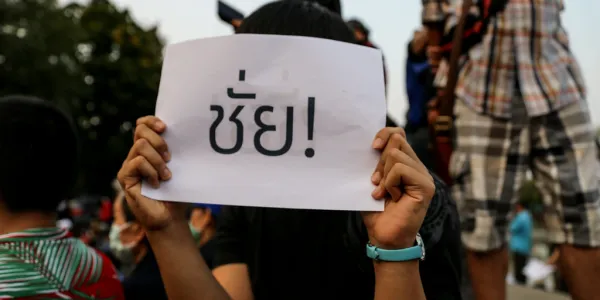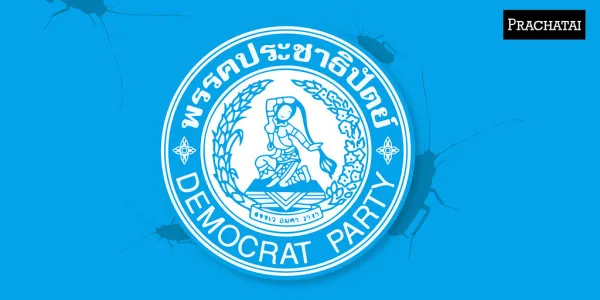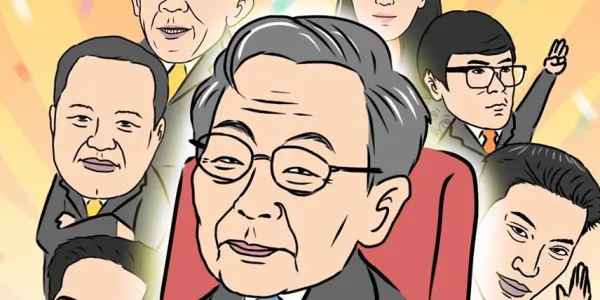By Prachatai |
<p>Pizza is unquestionably one of the best things ever happened to mankind. A form of it has been around since ancient times, and it is considered a crime for a person to say “I hate pizza.” But in Thailand, it is okay to say that. It means you do not want to be in jail for 15 years or longer because ‘pizza’ in Thai is also a political slang term for the lèse majesté law. </p>
By Prachatai |
<p>May 2020 is not only the 10th anniversary of the killing of the red shirts, but also the 6th anniversary of the 2014 military coup which overthrew Yingluck Shinawatra, the first woman prime minister of Thailand. In remembrace of the fateful event, Thai Political Slang Explained introduced '‘อีโง่’ or ‘stupid bitch', the offensive word which was abhorrently used to bring her down. </p>
By Prachatai |
<p>This month marks the tenth anniversary of the killings of the red shirt protesters. Thai Political Slang Explained explores a word which justified the 2010 crackdown and, in a forthcoming second part, how it changed meaning in an unexpected twist to become a pejorative nickname of the Commander in Chief of the Royal Thai Army.</p>
By Thammachart Kri-aksorn |
<p>If you paid a visit to a student protest in Thailand in the last two weeks, ชั่ย is the word which you would encounter the most often. But do you know what it means?</p>
By Prachatai |
<p>Ngu hao (งูเห่า) or ‘cobra’ in Thai political culture means renegade politicians who betray their colleagues or the trust of people who elected them, in order to reap the benefits from joining a government coalition. </p>

